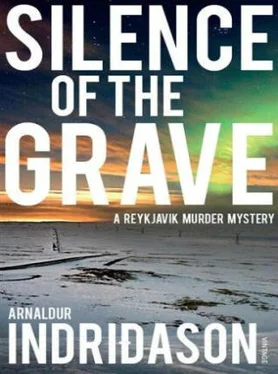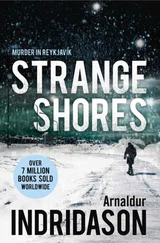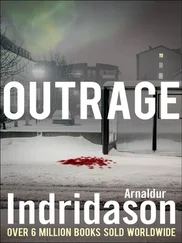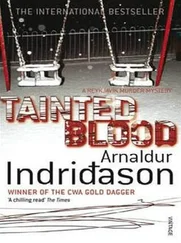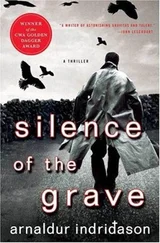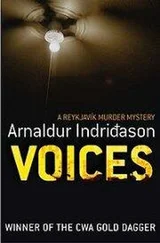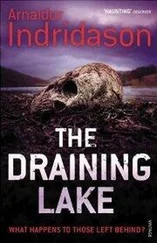Arnaldur Indridason - Silence Of The Grave
Здесь есть возможность читать онлайн «Arnaldur Indridason - Silence Of The Grave» весь текст электронной книги совершенно бесплатно (целиком полную версию без сокращений). В некоторых случаях можно слушать аудио, скачать через торрент в формате fb2 и присутствует краткое содержание. Год выпуска: 0101, ISBN: 0101, Издательство: Random House Publishing Group, Жанр: Полицейский детектив, на английском языке. Описание произведения, (предисловие) а так же отзывы посетителей доступны на портале библиотеки ЛибКат.
- Название:Silence Of The Grave
- Автор:
- Издательство:Random House Publishing Group
- Жанр:
- Год:0101
- ISBN:9781407020952
- Рейтинг книги:3 / 5. Голосов: 1
-
Избранное:Добавить в избранное
- Отзывы:
-
Ваша оценка:
- 60
- 1
- 2
- 3
- 4
- 5
Silence Of The Grave: краткое содержание, описание и аннотация
Предлагаем к чтению аннотацию, описание, краткое содержание или предисловие (зависит от того, что написал сам автор книги «Silence Of The Grave»). Если вы не нашли необходимую информацию о книге — напишите в комментариях, мы постараемся отыскать её.
Silence Of The Grave — читать онлайн бесплатно полную книгу (весь текст) целиком
Ниже представлен текст книги, разбитый по страницам. Система сохранения места последней прочитанной страницы, позволяет с удобством читать онлайн бесплатно книгу «Silence Of The Grave», без необходимости каждый раз заново искать на чём Вы остановились. Поставьте закладку, и сможете в любой момент перейти на страницу, на которой закончили чтение.
Интервал:
Закладка:
She looked at Erlendur, her head jerking as she spoke.
"They used to carry me out here when the sun shone," she smiled. "My brothers. There was nothing I loved more than to sit outside in the sunshine, and I used to squeal with joy when I came out into the garden. And we played games. They were always inventing new games to play with me, because I couldn't move much. Due to my disability, which was much worse in those days. They tried to include me in everything they did. That they got from their mother. Both the brothers, at first."
"What did they get from her?"
"Kindness."
"An old man told us about a lady in green who sometimes comes here to tend the bushes. His description fits you. We thought it might be someone from the chalet that was here once."
"You know about the chalet."
"Yes, and some of the tenants, but not all. We think a family of five lived here during the war, possibly the victims of violence from the father. You mentioned your mother and both brothers, two of them, and if you're the third child in the family, that fits the information we have."
"Did he talk about a lady in green?" she smiled.
"Yes. The lady in green."
"Green's my colour. Always has been. For as long as I can remember."
"Don't they say that people who like green are down-to-earth types?"
"That could be true," she smiled. "I'm terribly down-to-earth."
"Do you know of this family?"
"We lived in the house that was here."
"Domestic violence?"
She looked at Erlendur.
"Yes, domestic violence."
"It would have been. ."
"What's your name?" she interrupted Erlendur.
"My name's Erlendur," he said.
"Do you have a family?"
"No, yes, well, a kind of family, I think."
"You're not sure. Do you treat your family well?"
"I think. ." Erlendur hesitated. He had not anticipated being questioned and did not know what to say. Had he treated his family well? Hardly, he thought to himself.
"Maybe you're divorced," the woman said, looking at Erlendur's tatty clothes.
"As it happens, I am," he said. "I was going to ask you. . I think I was asking you about domestic violence."
"Such a convenient term for soul murder. Such a harmless term for people who don't know what lies behind it. Do you know what it's like, living in constant fear your whole life?"
Erlendur said nothing.
"Living with hatred every single day, it never stops no matter what you do, and you can never do anything to change it, until you lose your independent will and just wait and hope that the next beating won't be as bad as the one before."
Erlendur did not know what to say.
"Gradually the beatings turn into sadism, because the only power that the violent man has in the world is his power over the one woman who is his wife, and that power is absolute because he knows she can do nothing. She is totally helpless and totally dependent on him because he doesn't just threaten her, doesn't torment her only with his hatred and anger for her, but with his loathing for her children too, and makes it clear that he'll harm them if she tries to break free from his power. All the physical violence, all the pain and the beatings, the broken bones, the wounds, the bruises, the black eyes, the split lips — they're nothing compared to the mental torment. Constant fear that never goes away. For the first years, when she still shows some sign of life, she tries to find help and she tries to flee, but he catches her and whispers to her that he'll kill her daughter and bury her on the mountainside. And she knows he's capable of that, so she gives up. Gives up and commits her life into his hands."
The woman looked over towards Esja and to the west, where the outline of Snaefellsnesjokull glacier could be seen.
"And her life becomes a mere shadow of his life," she continued. "Her resistance ebbs and with it her will to live, her life becomes his life and she is no longer alive, she's dead, and she goes around like a creature of darkness in an endless search for a way out. A way out from the beatings and the torment and his life, because she no longer lives her own life, but only exists as the object of his hatred.
"In the end he destroys her. And she's all but dead. One of the living dead."
She became silent and stroked her hand across the bare branches of the bushes.
"Until that spring. During the war."
Erlendur said nothing.
"Who passes sentence on anyone for soul murder?" she went on. "Can you tell me that? How can you charge a man for soul murder, take him to court and have him sentenced?"
"I don't know," Erlendur said, not altogether following.
"Have you got down to the bones?" she asked, almost as if her mind was elsewhere.
"We will tomorrow," Erlendur replied. "Do you know anything about who's buried there?"
"She turned out to be like these bushes," the woman said faintly.
"Who?"
"Like the redcurrant bushes. They don't need tending to. They're particularly hardy, they withstand all kinds of weather and the harshest winters, but they're always green and beautiful again in the summer, and the berries they produce are just as red and juicy as if nothing had ever happened. As if winter had never come."
"Pardon me, but what's your name?" Erlendur asked.
"The soldier brought her back to life."
The woman stopped talking and stared into the bushes as if transported to a different place and a different time.
"Who are you?" Erlendur asked.
"Mum loved green. She said green was the colour of hope."
She snapped out of her trance.
"My name's Mikkelina," she said. Then she seemed to falter. "He was a monster," she said. "Full of uncontrollable hatred and rage."
23
It was approaching 10 p.m., the temperature was dropping on the hill and Erlendur asked Mikkelina whether they ought not to get in his car. Or they could talk some more tomorrow. It was late and. .
"Let's get in your car," she said, and set off. She moved slowly and lurched to one side with every step that she took with her club foot. Erlendur walked just ahead of her and showed her to his car, opened the door and helped her in. Then he walked round the front of the car. He couldn't work out how Mikkelina had got to the hill. She didn't seem to have driven.
"Did you take a taxi here?" he asked as he sat down behind the wheel. He started the engine, which was still hot, and they soon warmed up.
"Simon gave me a lift," she said. "He'll be back to collect me soon."
"We've tried to gather information about the people who lived on the hill — I presume it's your family — and some of what we've heard, mostly from old people, sounds strange. One story is about the Gasworks by Hlemmur."
"He teased her about the Gasworks," Mikkelina said, "but I don't think she was the product of some doomsday orgy there as he said. It could just as easily have been him. I think that insult was levelled at him once, he might even have been teased about it, maybe when he was younger, maybe later, and he transferred it to her."
"So you think your father was one of the Gasworks kids?"
"He wasn't my father," Mikkelina said. "My father was lost at sea. He was a fisherman and my mother loved him. That was my only consolation in life when I was a child. That he was not my father. He hated me in particular. The cripple. Because of my condition. I had an illness at the age of three that left me paralysed and I lost my power of speech. He thought I was retarded, but my mind was normal. I never had any therapy, which people take for granted nowadays. And I never told anyone, because I lived forever in fear of that man. It's not unusual for children who experience a trauma to become reticent and even dumb. I presume that happened to me. It wasn't until later that I learned to walk and started talking and got an education. I've got a degree now. In psychology."
Читать дальшеИнтервал:
Закладка:
Похожие книги на «Silence Of The Grave»
Представляем Вашему вниманию похожие книги на «Silence Of The Grave» списком для выбора. Мы отобрали схожую по названию и смыслу литературу в надежде предоставить читателям больше вариантов отыскать новые, интересные, ещё непрочитанные произведения.
Обсуждение, отзывы о книге «Silence Of The Grave» и просто собственные мнения читателей. Оставьте ваши комментарии, напишите, что Вы думаете о произведении, его смысле или главных героях. Укажите что конкретно понравилось, а что нет, и почему Вы так считаете.
